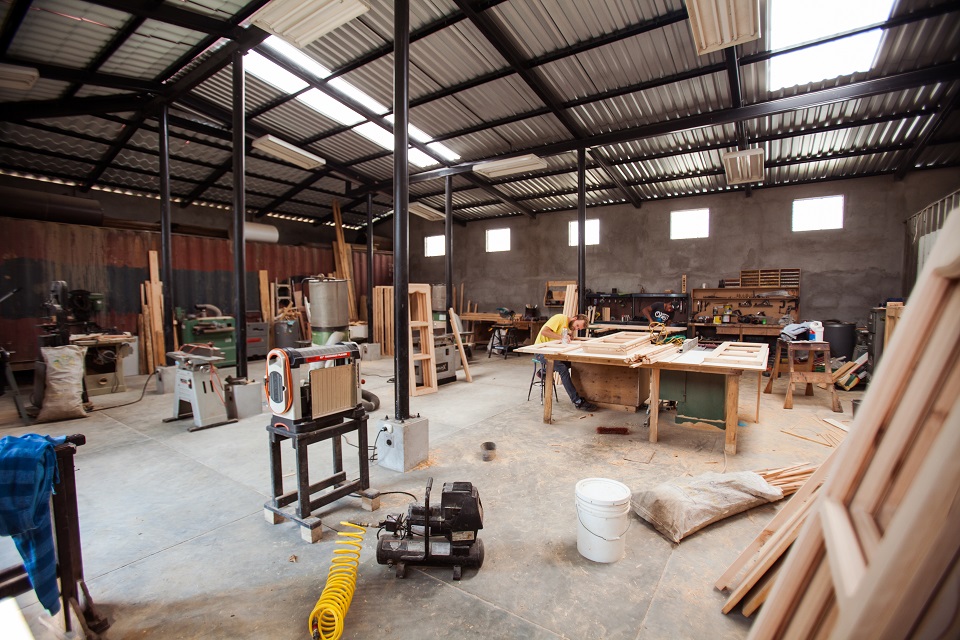Why do you Need a Home Appraisal when Buying a Home?

When purchasing or selling a property, you need to manage various formalities!

Photos By: Stock Images
Whether it is regarding mortgage, refinancing, or another related aspect, you must be mindful of each slightest detail to avoid any issues arising in the prospective future. One such key component you need to understand and look after when buying a home is appraisals.
Home appraisals safeguard buyers and sellers by determining the property’s true value. This means the buyers do not have to overpay, while sellers can prevent themselves from getting underpaid. In addition, many appraisal services help in providing unbiased appraisals. For instance, Metrowide Appraisal services provide professional home appraisals with creditable reports.
What’s a home appraisal?
In simple words, appraisals are property valuations that impartial professional appraisers issue. Appraisals determine whether the property is priced according to its valuation whenever properties like real estate, business assets, antiques, etc., need to be refinanced, purchased, or auctioned.
Most real estate transactions such as buying or selling of houses require appraisal reports. This assures the buyer that the house is not overpriced and thus prevents the buyer from paying more than the worth of the property. In addition, appraisals are also used for tax purposes to evaluate tax prices.

Factors affecting the home appraisal
Appraisal reports for properties presented by certified appraisers demonstrate the valuation of the property. This valuation is based on various factors that can affect the sale of the property either negatively or positively.
In addition, the appraiser uses several valuation methods such as comparison, income, and cost approaches to determine the property’s appropriate value. Some of the factors that influence the property quotation are listed below.
Location
The location of the property is an important factor when estimating its value. For instance, the location of a house in a neighborhood, nearby homes, schools, hospitals, police stations, fire stations, etc., may increase or decrease the valuation.
In addition, the standards of surrounding areas with proper roads, street lamps, and other public facilities can carry different significance in the appraisal. Furthermore, crime rates, suburban locality, transportation facilities, number of vacant and rented homes nearby also affect the valuation.
Age of property
Age of property refers to how old the house is. Generally, the houses built in the last 8-20 years are considered new. The houses aging more than 20 years are considered old.
Typically, new houses built within these specified years have lower risk factors associated and decrease the issues that might degrade the property. This leads to an increase in the valuation of new houses. On the other hand, older homes located in prominent districts that are well maintained can also have a high estimation in the appraisals.

Property size
The size of the property will also influence the price quotation in the appraisal report. The number of square footage covered by the property will determine its valuation. Not only this, the way the space is distributed within the house can affect the estimation.
For instance, Houses with less square footage but properly distributed space are likely to be valued more than houses with great size but poorly distributed space. The number of bedrooms, bathrooms, etc., evaluated by the International Residential Code (IRC) standards, can also influence the valuation.
Design and structure
From the appraiser’s viewpoint, how appealing the house looks in compassion to the neighborhood houses is important. In addition, the design, structure of interiors, exteriors, modern ailments, etc., can add up to the values.
For example, old houses that suit the modern designs and structures are likely to be quoted at a higher value than the houses with bygone structures, space distribution, and design. In addition, well-built houses constructed with fine quality materials are likely to be estimated at a higher price.
Amenities and renovations
Amenities such as furniture, proper ventilation system, laundry rooms, solar panels, walk-in closets and showers, air conditioners, room heaters, fuel and gas facilities, garage spaces, front yard, etc., boost the value of a house.
In addition, recent upgrades and renovations such as upgraded entry, renovated kitchen, bathroom, floors, ceilings, basements, etc., are likely to increase the value of a house in comparison to the houses with no recent upgrades.
Market values
Current economic factors and market values are crucial in evaluating the appropriate values. For example, houses with higher demand and lower supply in the real estate market are possibly valued higher than the houses with low demand and higher supply.
In addition, buyer and seller market business cycles, home inventories, national and local economic growth, hikes in prices, development of nearby towns and cities, interest rates and mortgage availability, buyers’ confidence, etc., create a huge impact on the appraised values.

Reasons why you need a home appraisal when buying a home
Appraisal reports requested by lenders such as banks are evaluated reports that indicate the real estate value. These reports are generally unbiased statements analyzed by certified and professional appraisers. Here’s how the appraisal reports can benefit you while buying a house.
- The main usage of appraisals is to avoid overestimating or underestimating the value of a house based on the market prices. This will help avoid paying extra money than the house’s worth. In addition, the fair-priced valuation will ensure you are not robbed by paying more under the contract.
- If the appraisal report estimates the value of the house at a lower valuation, then this may help you in negotiations. You can negotiate with the seller for a lower price and can thus save some cash in the transaction closing process.
- The main advantage of appraisals when buying a home is ensuring that you can get a private mortgage from banks in the prospective future. In addition, a proper appraisal for the house will help you get home equity loans at fair interest, protect your investments, and provide an accurate tax assessment.
Conclusion
When buying a house, ensure that you have carefully looked into the appraisals provided by the property owners. Additionally, make sure the appraisals are from reputed sources and then consider buying the real estate property.
Finally, always ask beforehand for appraisal reports and other documents to check whether the property is under any mortgage loans or not to avoid any legal issues in the future regarding unpaid loans.






